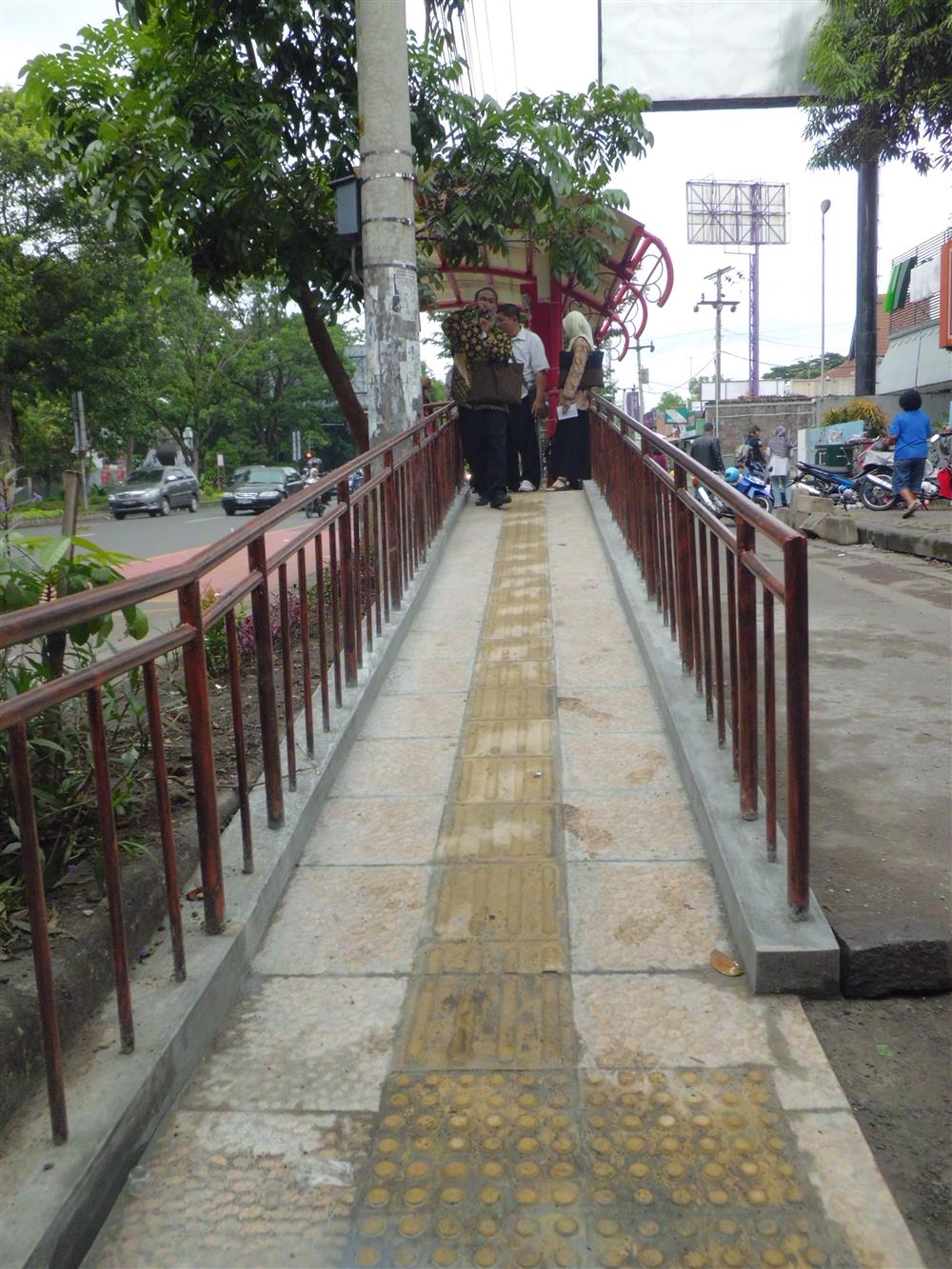STANDARD OF ACCESSIBILITY OF PUBLIC TRANSPORTATION, INFORMATION & COMMUNICATION
- Solution
- Solo City: Access to transport that can be enforced
- Organization
- City of Solo City, Department of Transportation, Information and Communication
- Country of Implementation
- Indonesia
- Region
- Asia & Pacific
- Subregion
- Southeast Asia
- City
- Solo (Surakarta)
- Start Year
- 2006
- First published
- 31.01.2014

Solution details
People
“Thanks to the Standard, the City of Solo was declared a disability-inclusive city on 28th September 2013.” Sunarman Sukamto, CBR DTC Solo City, Indonesia
Solo’s Standard of Accessibility of Public Transportation, Information and Communication of 2006 comprises two parts. The first part, concerning public transportation, is based on and enforced at the national level by the Ministerial Regulation on Technical Guidelines of Facilities and Accessibility in Buildings and Environment of 2006. The second part, concerning information and communication, exists only at Solo City level. The local government department of Transportation, Information, and Communication is responsible for its implementation.
Problems Targeted
Not many cities in the Global South have enforceable accessibility standards concerning their transportation services. The Standard of City of Solo is legally binding and uncommon in that it also includes provisions for accessible information and communication.
Solution, Innovation and Impact
Solo’s Standard of Accessibility of Public Transportation, Information and Communication of 2006 aims to improve accessibility, safety, and the dignity of people with disabilities and the elderly in the City of Solo, by promoting adequate measures that support self-sufficiency and well-being. The national Ministerial Regulation on Technical Guidelines of Facilities and Accessibility in Buildings and Environment was adopted as a fundamental guideline for the Standard. The Standard provides a reference for development activities, which include the technical planning and execution of constructions, thereby creating an accessible built environment. It consists of a series of detailed plans and pictures about how to build accessible facilities. Concerning information and communication, all Solo government officials receive, for example, free training in sign language. In addition, DPOs promote the availability of sign language interpreters in government offices, terminals, railway stations, etc., and governmental offices are providing computers with screen readers. The Standard has been the trigger for the development of the Local Regulation No. 2 of 2008 on Equality of Persons with Disabilities.
Media
Pictures
Related information
- Connections
- 2
-
Organization
- People